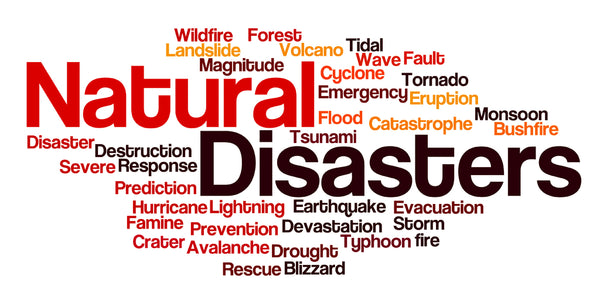Emergency Radio
Emergency Radio
An Emergency Radio can keep you safe and well prepared during a power outage, natural disaster, or misadventure. We recommend an easy-to-use all in one device that functions like a dynamo hand-crank radio, flashlight and smartphone charger. Keeping an emergency radio close by will allow you to stay tuned to your local AM FM stations and or weather band alert stations. Staying updated and informed on unsafe weather conditions and important news reports will increase your chance of survival during an emergency situation.
An emergency radio is a necessary and essential part of any emergency kit. When power and other forms of communications are down, a radio may be your only source of information and news. Emergency radios are versatile devices that are durable, rechargeable, and provides a variety of different functions.
Emergency Radios come with a variety of different functions including; lighting, AM FM Radio, Hand-crank recharging, Solar powered, portable charger, and phone charging capabilities, signal, siren, USB and/or micro-USB ports.
72 HOURS carries a variety of Emergency Radios.
72 HOURS carries:
- 72HRS Portable AM/FM Radio
- Kaito Voyager Dynamo Solar Radio
- Kaito Solar, Dynamo Voyager Trek Radio Flashlight
- Kaito Voyager Pro KA600 Digital Solar/Dynamo AM/FM/LW/SW & NOAA Weather Emergency Radio with Alert & RDS
- Kaito KA700 Bluetooth Emergency Hand Crank Dynamo & Solar Powered AM FM Weather Band Radio With Recorder and MP3 Player & More
- Degen Portable AF/FM Radio
In an emergency
- Follow your emergency plan.
- Get your emergency kit.
- Make sure you are safe before assisting others.
- Listen to the radio or television for information from authorities. Local officials may advise you to stay where you are. Follow their instructions.
- Stay put until all is safe or until you are ordered to evacuate.
Evacuation orders
Authorities will not ask you to leave your home unless they have reason to believe that you may be in danger.
If you are ordered to evacuate, take your emergency kit, your wallet, personal identification for each family member and copies of essential family documents with you. Bring a cellular phone and spare battery or charger with you, if you have one. Use travel routes specified by local authorities.
If you have time, call or e-mail your out-of-town contact. Tell them where you are going and when you expect to arrive. Once you are safe, let them know. Tell them if any family members have become separated.
If possible, leave a note telling others when you left and where you are. Shut off water and electricity if officials tell you to do so.
Leave natural gas service on unless officials tell you to turn it off. If you turn off the gas, the gas company has to reconnect it. In a major emergency, it could take weeks for a professional to respond.
Take pets with you. Lock your home. Follow instructions from authorities.
If you go to an evacuation center, register your personal information at the registration desk. Do not return home until authorities advise that it is safe to do so.
Source: https://www.getprepared.gc.ca/cnt/rsrcs/pblctns/yprprdnssgd/index-en.aspx


















